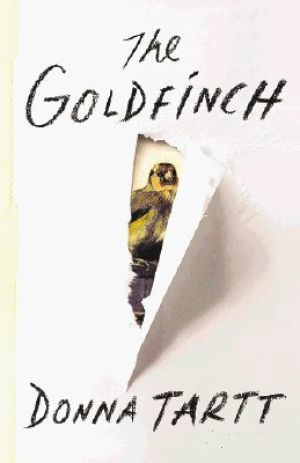The Director’s Notebook
August, 2014

The Goldfinch by Donna Tartt
Ekphrastic poems are poems about a specific work of art. In that case, what do you call a novel written about a specific painting? Perhaps it hasn’t been done enough-writing a novel about a specific painting—to warrant a defining label. Yet,no matter what we label The Goldfinch by Donna Tartt, it will fall into the enviable category of “books you cannot put down.”
The Goldfinch is a real painting by a real painter, Carel Fabritius, a contemporary of Rembrandt . The rest of the book is unabashed, compelling fiction. When reading this lengthy novel we are introduced to a young boy named Theo Decker who narrates in an urgent and disarmingly honest way his story which begins with unimaginable trauma, progresses through years of dishonesty, escapism, and obsession in the company of some very unsavory characters and ends, less than a dozen years later, with a kind of battered understanding that life is never what you hoped it would be.
Along the way Theo takes advantage of some, and is taken advantage of by others. With a shocking lack of adult guidance or concern, Theo is handed around among various “caregivers”, including his charming ne’er- do-well, usually absent father and his specious girlfriend, and the well-to-do , icily polite family of one of his eccentric school friends. Perhaps no one makes quite as strong an impression on Theo as Boris, another young boy equally neglected by his mostly absent father, but more accustomed to the violent and law breaking side of life. Under Boris’ tutelage Theo begins a long, slow decent into alcohol and drug abuse as a means of trying to fill up the endless pit of his loneliness and the heartbreak of losing his mother. Yet through every vicissitude Theo holds on to his stolen talisman, Fabritius’ Goldfinch, the delicate painting of a chained bird shackled to its perch.
For all the violence and despair in the book, this is not a grim story. In fact, Theo lives a life not just of despairing escapism but of daring escapades as well. The last quarter of the book is an edge-of-your- seat thriller that would translate beautifully into a fast-action movie. And at every corner the opportunities are there for Theo to change course and against the odds take back control of his own life. It would be an unusual reader who wasn’t rooting for him, all the way.




